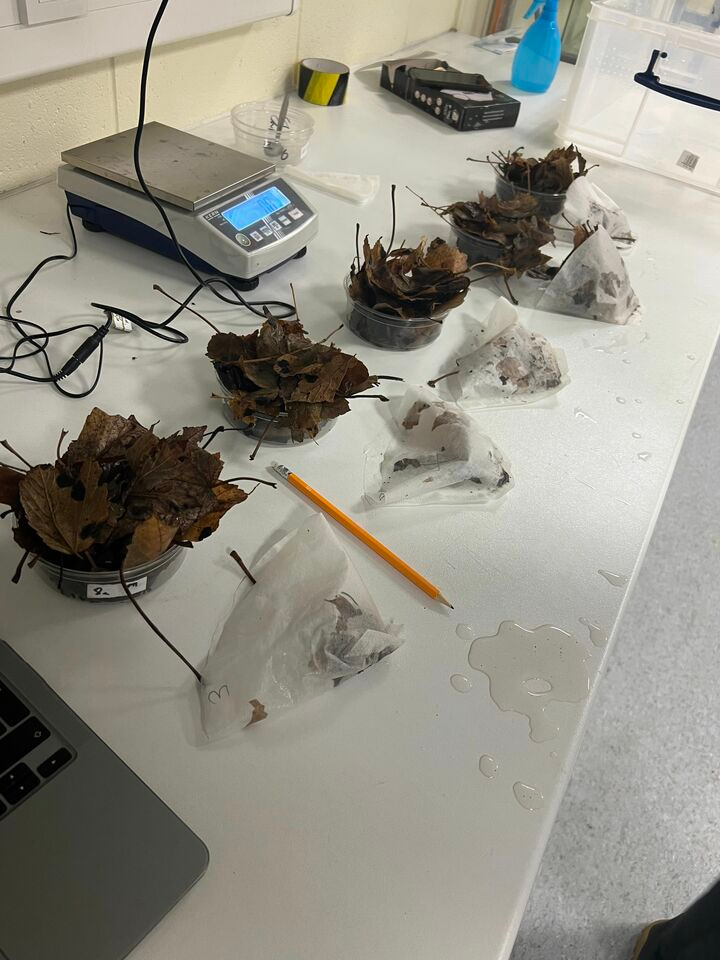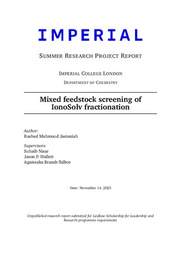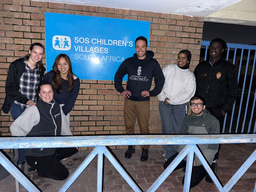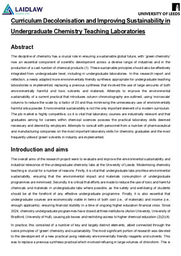Mussel Memory Week Two

My training is complete, and so my journey begins. This week I began to manage and run my very first independent project. Having formed a nice rhythm with my lab partner, we set up our experimental tanks and measured the crayfish with great efficiency. All that was left was the addition of leaves, but there were two problems.
Firstly, the mass of a wet leaf and a dry leaf differs greatly. (This is why I must make a dry-wet regression curve, which is just a fancy way of saying I need a graph to compare the weight of a dry leaf with a wet leaf so that I do not need to weigh the same leaves twice!) Due to these differences, my results came back rather skewed - there was a net positive mass of leaves in some tanks. At this point, I wondered whether I should be researching how crayfish produce leaves instead; maybe get a leaf-sprouting crayfish named after me.
The second problem was to do with picking out all the leaf debris from the tanks. I found it hard to determine what size of particulate was a suitable minimum. It was also a logistical challenge to actually remove the leaves and water from the tank. In the small space we have to work in, my lab partner and I moved like pendulums, swaying in a paired rhythm in order to avoid spilling the large buckets of water and leaves. Our nets were ripped and our brains a little fried by the time we finished.
And so, week two left me with two questions. Am I weighing the leaves wrong? And is there a better way to collect the leaves post-experiment?
Whilst thinking about how to improve my work, I finally got to meet the Quagga mussels that are my projects namesake. They are tiny animals in a cold and noisy walk-in fridge. I was given a protocol to read up on, and then essentially left to get on with it. According to my supervisor I was unfazed by the huge info dump she had given me. I will take that as a compliment, as all I could think about was the fact I am fresh out of first year, and from the wrong biological background.
So, what did I learn from this week?
Science rarely goes to plan, and there is almost always a better way of doing something. And actually, I am glad I have been trusted from the word go. How else do we learn if we can not make mistakes?





Please sign in
If you are a registered user on Laidlaw Scholars Network, please sign in
😂 . An interesting read.